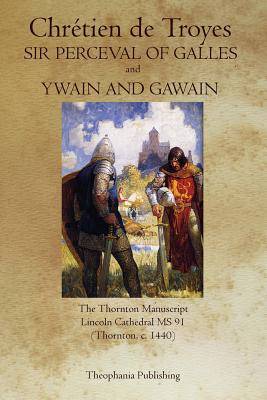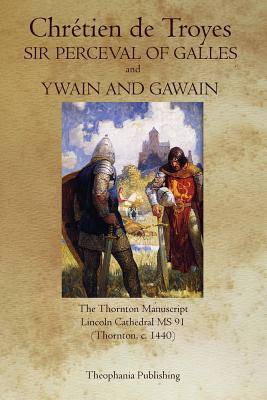
- Retrait gratuit dans votre magasin Club
- 7.000.000 titres dans notre catalogue
- Payer en toute sécurité
- Toujours un magasin près de chez vous
- Retrait gratuit dans votre magasin Club
- 7.000.0000 titres dans notre catalogue
- Payer en toute sécurité
- Toujours un magasin près de chez vous
32,95 €
+ 65 points
Description
Thank you for checking out this book by Theophania Publishing. We appreciate your business and look forward to serving you soon. We have thousands of titles available, and we invite you to search for us by name, contact us via our website, or download our most recent catalogues. Chrétien de Troyes was a French poet and trouvère who flourished in the late 12th century. Little is known of his life, but he seems to have been from Troyes, or at least intimately connected with it, and between 1160 and 1172 he served at the court of his patroness Marie of France, Countess of Champagne, daughter of Eleanor of Aquitaine, perhaps as herald at arms. His work on Arthurian subjects represents some of the best regarded of medieval literature. His use of structure, particular in Yvain, the Knight of the Lion, has been seen as a step towards the modern novel. Chrétien's works include five major poems in rhyming eight-syllable couplets. Four of these are complete; Erec and Enide (c. 1170); Cligès (c. 1176), and Yvain, the Knight of the Lion and Lancelot, the Knight of the Cart, both written simultaneously between 1177 and 1181. Chrétien's final romance was Perceval, the Story of the Grail, written between 1181 and 1190, but left unfinished, though some scholars have disputed this. It is dedicated to Philip, Count of Flanders, to whom Chrétien may have been attached in his last years. He finished only 9,000 lines of the work, but four successors of varying talents added 54,000 additional lines in what are known as the Four Continuations. Similarly, the last thousand lines of Lancelot were written by Godefroi de Leigni, apparently by arrangement with Chrétien. In the case of Perceval, one continuer says the poet's death prevented him from completing the work, in the case of Lancelot, no reason is given. This has not stopped speculation that Chrétien did not approve of Lancelot's adulterous subject. Chrétien's five romances together form the most complete expression from a single author of the ideals of French chivalry. Though as of yet there has been little critical attention paid to the subject, it is not inaccurate to say that Chrétien was influenced by the changing face of secular and canonical law in the twelfth century. This is particularly relevant for his Lancelot, the Knight of the Cart which makes repeated use of the customary law prevalent in Chrétien's day.
Spécifications
Parties prenantes
- Auteur(s) :
- Editeur:
Contenu
- Nombre de pages :
- 210
- Langue:
- Anglais
Caractéristiques
- EAN:
- 9781770831339
- Date de parution :
- 05-05-11
- Format:
- Livre broché
- Format numérique:
- Trade paperback (VS)
- Dimensions :
- 152 mm x 229 mm
- Poids :
- 285 g

Les avis
Nous publions uniquement les avis qui respectent les conditions requises. Consultez nos conditions pour les avis.






